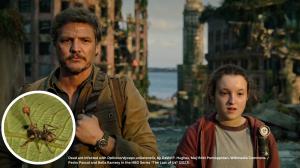
A review in FEMS Microbiology Letters reveals how movies can raise public awareness and appreciation of the world of microbiology.
— Manuel Sanchez, Microbiology professor at UMH
ELCHE, ALICANTE, ESPAñA, February 23, 2024 /EINPresswire.com/ — Elche (Spain), January 22, 2024. Usually, show business depicts viruses, bacteria, and other microorganisms as one of the worst menaces to humankind. Entertainment movies influence the way audiences understand and perceive these topics. Yet, few films accurately portray the science of microbiology and its social implications. Movies and TV series often feature outbreaks of deadly diseases and the efforts of scientists and medical professionals to contain them. However, entertainment movies can also educate the public about the importance and the impact those microorganisms have on our lives. A new publication in FEMS Microbiology Letters provides insights and examples to teach microbiology concepts to undergraduate students.
Manuel Sanchez is a Microbiology professor at the Miguel Hernandez University of Elche. He’s been using movies in class for many decades. He finds students can learn complex scientific concepts easily when integrated into a story. The expert has recently published a review in FEMS Microbiology Letters to show the relationship between movies and microbiology, from the fight against diseases such as AIDS or tuberculosis to the zombie apocalypse.
“Maybe one day the Academy of Motion Picture Arts and Sciences will honor an Oscar award for microbes”, writes Sanchez. According to the Internet Movie Database (IMDB), as of June 2023, there were 2,502 titles related to the keyword’ virus’, 184 related to ‘bacteria’, and 760 to ‘infection’. For example, without viruses, we would not have such cinematic characters as the zombies that try to eat Brad Pitt and his family in “World War Z” or the cool vampires from the “Blade” saga.
But are microbes villains, or are they heroes? Although microbes do much more good than harm in nature, this aspect is rarely represented on screen. Professor Sanchez explains that some film productions, especially recent ones, take great care in enrolling scientific advisors to have the most plausible and realistic scripts. However, in most occasions, that situation does not occur, so making a virtue out of necessity, movie goofs such as the scene from “Mission: Impossible II” where a flu virus infects a red blood cell, can be seen as an opportunity to explain the concept and conditions of viral host recognition to undergraduate students.
Movies can be used in the classroom in two ways, depending on the time available. Students can watch the whole film as an external activity and then discuss its content in class. Another option is to use clips of selected scenes related to the subject to be addressed. For example, in minute 19 of “Dallas Buyers Club”, a medical doctor (Jennifer Garner) explains to her AIDS patient (Matthew McConaughey) what is a double-blind clinical trial. This scene can be used as an introduction to a class about bioethics and/or drug development. Another example is the sequence at minute 74 from the movie “Panic in the Streets”, which can be used to explain the ‘One Health’ concept, thanks to the following dialogue:
Community? What community? Do you think you’re living in
the Middle Ages? Anybody that leaves here can be in any city in
the country within 10 hours. I could leave here today and be in
Africa tomorrow. And whatever disease I had would go with me…
Then think of it when you’re talking about communities! We’re all
in a community…the same one!
Professor Sanchez’s review can be helpful for teachers looking for such learning material. The paper is organized into three major sections, providing insights and examples of movies and TV/streaming series telling stories involving real diseases, others about the role of scientists, and feature films about the apocalyptic results of microbial infection.
The first section is dedicated to the real infectious diseases represented on the screen. Commercial movies are better known to the general public than documentaries, so they could be used to explain the symptoms of the illness and other aspects, such as the care of the sick or the impact of the disease in a particular historical moment or in our current society. For example, in “The African Queen” (John Huston, 1951), Charlie, Humphrey Bogart’s character, is bitten by a mosquito and is affected by malaria. Spoiler alert: he survives, unlike Giovanni de Medici in “Il mestiere delle armi” (“The Profession of Arms, Ermanno Olmi, 2001).
A second section is dedicated to movies where the protagonists are the scientists and medical doctors who fight against microbial diseases. In this case, the main concepts to be explained are scientific methods and biocontainment measures. For example, “Outbreak” (Wolfgang Petersen, 1995) is so full of scientific mistakes that it’s actually amusing to dissect. Also, the stereotype of the scientist has evolved from the solitary, dedicated hero of the 1930s to today’s interdependent groups of highly technical researchers.
Finally, the last part deals with the films in which microbes manage to defeat humanity, creating a dystopian world. Movies and series like “I Am Legend” (Danny Boyle, 2002), “28 Days Later”, or “The Last of Us” (Neil Druckmann and Craig Mazin, 2023) are well known by the public and can be used to explain key concepts in epidemiology and disease transmission but also how to deal with highly stressful situations.
Professor Sanchez is a microbiologist and science communicator. He has written several books regarding this subject and articles about microbiology in popular culture for The Conversation.
Angeles Gallar
Universidad Miguel Hernández de Elche
email us here
Visit us on social media:
Facebook
Twitter
LinkedIn
Instagram
YouTube
TikTok
![]()
Originally published at https://www.einpresswire.com/article/690744762/it-s-award-season-let-s-celebrate-microbes-in-movies



